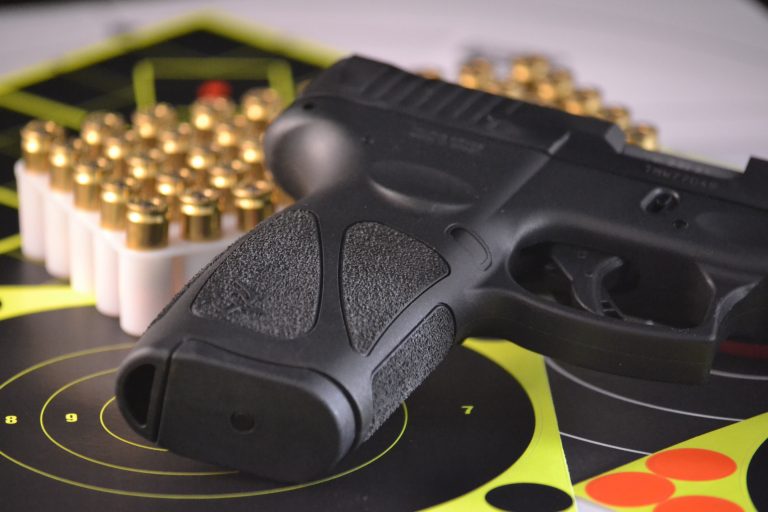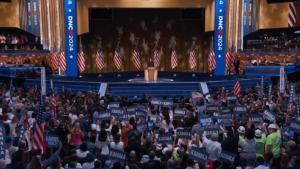The effectiveness of a common gun-control measure is facing new scrutiny.
Gun buybacks don’t reduce crime and may actually make things worse, according to a new study released this month. Researchers working with the National Bureau of Economic Research looked at almost 25 years of data to analyze whether buybacks in 100 different U.S. cities affected gun crime. They concluded the programs were “an inefficient use of taxpayers’ dollars.”
“Our findings provide no evidence that [gun buyback programs] are effective at deterring gun crime, firearm-related homicides, or firearm-related suicides in the short or long run,” the authors concluded.
The researchers found gun crimes actually increase in the immediate aftermath of a gun buyback.
“Moreover, we find some evidence of a small, short-run increase in gun crime in the two months following a [gun buyback program],” they said. “This result is consistent with the notion that [gun buyback programs] primarily target low-risk firearms that are more likely to deter crime than be used in the commission of a crime and with the hypothesis that some criminals may be emboldened by their perception that victims will be less likely to defend themselves with deadly physical force.”
The findings undermine the push for new gun buybacks. The tactic has been adopted largely by politicians and police departments in big cities but was also a key part of the gun agenda that President Joe Biden ran on.
The study represents a first-of-its-kind comprehensive review of the policy’s impact on gun crime and suicide. Researchers Toshio Ferrazares of the University of California, Joseph J. Sabia of San Diego State University, and D. Mark Anderson of Montana State University studied data from the National Incident Based Reporting System, National Vital Statistics System to analyze the effect of buybacks. The study was published as a working paper and has yet to be peer-reviewed.
The researchers said they were able to conclude, with a high degree of confidence, the data shows no significant correlation between buybacks and declines in gun crime.
“The precision of our estimates is such that, with 95 percent confidence, we can rule out gun crime declines of greater than 1.3 percent in the 12 months following a buyback and gun crime declines of greater than 2.3 percent more than one year after a buyback,” they wrote in the study.
The researchers said buybacks tend to target low-crime neighborhoods and provide too little incentive for participating. They suggested changing who the buybacks targeted and how much money was spent on conducting buybacks could improve the effectiveness of the buybacks. But they said those changes are unlikely to be politically palatable.
“The limited public appetite for large-scale government spending on voluntary gun confiscation, coupled with the inherent difficulties of targeting weapons used by criminals but not those used by those who would defend themselves, make gun buybacks an unlikely anti-gun crime-fighting tool,” the researchers said.







4 Responses
You’re assuming that the intention is to lower crime. While I’m not going to assume that those who run gun “buybacks” don’t want crime to go down, the driving force behind “buybacks” is to demonize firearms as something that are a plague on society and therefore categorize them as something which should be eliminated. So in that, they’re more of a success.
I’m pretty sure I have seen previous studies showing the same thing.
My experience with buybacks (I worked with one gun violence prevention organization for a little while until we parted ways because I did not keep strictly to the Party Line) is people return unwanted or long forgotten guns. To a criminal, a gun is a tool of the trade. The idea that a criminal or someone dependent on a firearm would turn one in for a gift card is laughable. I would have thought the buybacks might have a measurable effect on suicides, but probably not enough guns turned in to make a difference. Or, the people turning in guns have kept a few.
Nor do we imagine that a “cash for clunkers” program reduces DUIs.
Time for a little “common sense”:
Why would a criminal give up a functional firearm for a gift card, if that criminal is using the gun to extract value from society in excess of the gift card?
Why would a criminal give up a functional firearm when he is also using it defensively to protect his interests (life, property, power) in a criminal landscape, also worth more than a dumb gift card?
Any problems we have with violence in this country need to be tackled at the human level, not the tool level. Solutions to violence need to focus on people. It’s wishful thinking to believe that ignoring the social and cultural problems feeding cycles of violence will be compensated for by banning the possession of certain peculiar objects.
If they did a buyback, I’d love for the 3d printing community to just print dozens of AR15 / Glock receivers for like, $4 a pop and turn them in for a hefty profit which then gets reinvested in making more scary ghost gunzzz!